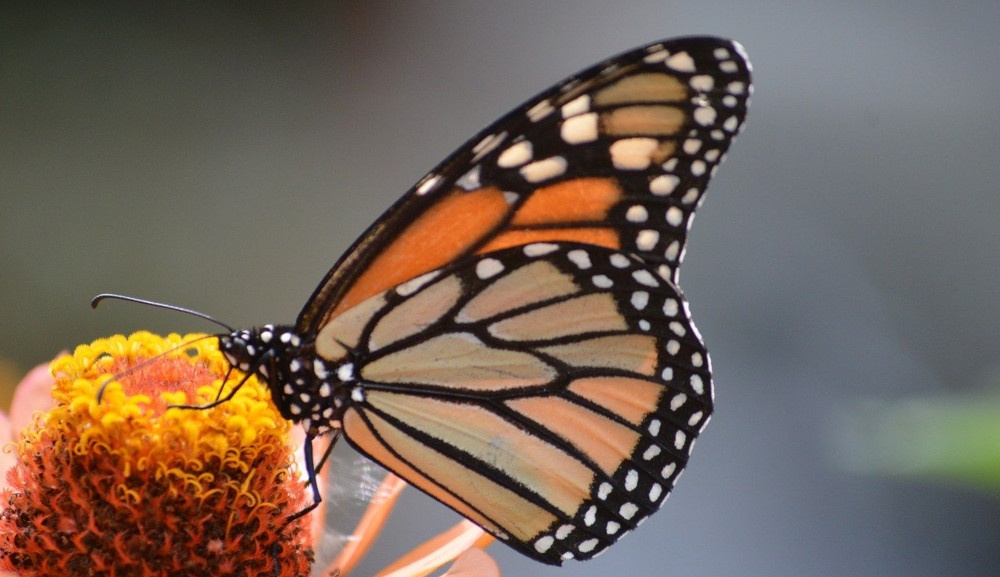
In the years we were at the Church of the Crossroads in Honolulu, we were fascinated by the Monarch butterflies emerging from their cocoons on the church grounds at just this time of the year.
It was a gradual and sticky affair, at least as I recall. The lovely golden, black and white Monarchs didn’t pop out in an instant. It was a labor to get out of the sack. And like most newborns they were a bit of a mess. They might hang around for hours, even a day, to get really flight worthy.
I’ve been thinking about the Monarchs, as we now emerge from the pandemic cocoon. I’m not sure gradual is even the right word. It seems more herky-jerky or “on-again/ off-again.” Open up? Well, not quite. You’re vaccinated? Don’t stop wearing your mask! School’s open? Sort of. We are not sure quite how to behave. We’re testing the waters, sniffing the air, assessing our skills. And all the while a little depleted from the time in the sack and the struggle to get out.
Of late, I’ve felt impatient with it all, ready for it to be over. But that’s me. Linda has threatened to make the inscription on my tombstone, “What’s the hurry?”
Henry Huffman, a reader of this blog and participant in our C42 conversation group, shared an article from Sojourners magazine that both captured and challenged my impatience. Here’s author Sharon Betcher:
“AS WE ENTER the second year of the pandemic, craving juices our throats. We just want to feel alive again: to hear spontaneous laughter and song; to lay our eyes on one another without the mediation of Zoom; to smell a grandchild’s neck without the filter of a mask; to brush against the crowd, breaching the numbness of isolation. We just want to get back to normal, we say. But normal, as science writer Ed Yong observes, is precisely what led to this. Even epidemiologist Michael Osterholm worries that we are ‘trying to get through this [pandemic] with a vaccine without truly exploring our soul.’ Curiously, that puts the depths of soul on the public health agenda.”
Am I — are we — “trying to get through this with a vaccine without truly exploring our soul”?
That does tend to be our modern and American MO, doesn’t it? Using leadership teacher Ron Heifetz’s language, we prefer a “technical fix” (give me a pill or a shot) but avoid the harder “adaptive work,” the change of hearts and minds. Have we changed? Come to our senses? Is Ed Yong (see above) right that “it is precisely our normal” that led to the pandemic?
It’s hard to gauge soul change in something like a city or nation, let alone a world. If we are looking for a total, every living thing, top to bottom, mass repentance as in Nineveh (see Book of Jonah), we may wait a long time. But I don’t think it accurate to say there’s been no change or that there has been no soul-searching. In fact, I’d say there’s been quite a lot. That said, it’s too early to really know how we’ve changed or how the pandemic has changed us. We’re too close to it as yet.
Still, Trump didn’t get re-elected because of his leadership, or lack of it, on the pandemic. And Biden embodies a new willingness to see government action as critical, as part of the solution. Those are big changes in my book. It remains to be seen, of course, if Biden can get his American Jobs Plan and infrastructure proposals through and, if he does, what the results will be.
But right now we are in what William Bridges in his little classic, Transitions: Making Sense of Life’s Changes, called “the neutral zone.” Bridges argument is that in life’s changes, big and small, we don’t simply go from an ending to a new beginning. There’s always an in-between. A messy, disorienting, confusing middle, “the neutral zone.” You don’t go from walking through the Red Sea directly into the Promised Land. There’s a stretch in the wilderness. As it happened, a fairly long stretch. Damn.
It’s uncomfortable. That, it seems to me, is where we are now. The ending itself is unclear. The new normal is not yet in sight. So it’s probably a time — preaching to myself here — for patience. Patience with your self. Patience with others. Particularly a time to cut some slack for those in positions that have them managing all this for others — school teachers, principals, parents, employers, ministers and more.
Maybe a good time to take stock, to ask ourselves what have I learned? Are there things we have learned to take forward with us on the next leg of the journey? Are there other things that need, now, to be left behind?
Discover more from Post Alley
Subscribe to get the latest posts sent to your email.
